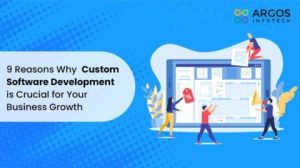
In the rapidly evolving world of human resources (HR), technology is playing a crucial role in streamlining processes, improving efficiency, and ultimately driving business success. HR technology solutions enable organizations to automate mundane tasks, enhance employee engagement, and make data-driven decisions. This article explores the various benefits and features of HR technology solutions and how they revolutionize HR operations.
1. Improved Recruitment and Onboarding Processes
One of the primary challenges faced by HR professionals is finding the right talent for their organization. With HR technology solutions, the recruitment and onboarding processes become more efficient and effective. Automated applicant tracking systems (ATS) help streamline candidate screening, shortlisting, and interview scheduling, saving valuable time for HR teams. Additionally, electronic onboarding platforms enable new hires to complete paperwork and necessary documentation digitally, minimizing administrative burden and accelerating the assimilation process.
2. Enhanced Employee Engagement and Performance Management
An engaged workforce is critical for driving organizational success. HR technology solutions enable HR professionals to foster employee engagement and monitor performance effectively. Online platforms and mobile applications provide employees with access to self-service options, allowing them to update personal information, view pay stubs, request time off, and access training materials conveniently. Performance management systems provide real-time feedback, goal tracking, and performance reviews, facilitating continuous improvement and recognition in a systematic manner.
3. Streamlined HR Operations
HR technology solutions automate and streamline various HR processes, reducing manual effort and creating a more efficient HR department. Payroll processing, benefits administration, and attendance tracking are seamlessly integrated into a single platform, eliminating redundant tasks and reducing errors. This automation not only saves time but also ensures compliance with labor regulations, minimizing legal risks for the organization. Automated workflows and notifications make task management more organized and transparent, enabling HR teams to focus on strategic initiatives.
4. Data-Driven Decision Making
With the advent of HR technology solutions, data analysis and reporting have become more accessible, enabling HR professionals to make informed decisions. These solutions gather and analyze vast amounts of employee data, providing valuable insights into workforce trends, turnover rates, performance metrics, and diversity statistics. HR analytics dashboards offer visual representations of critical data, empowering HR teams to identify areas for improvement, detect patterns, and make data-driven decisions that align with the organization’s goals.
5. Compliance and Security
HR technology solutions ensure compliance with legal and security requirements. Employee data confidentiality and protection are of utmost importance, and modern HR software provides robust security measures to safeguard sensitive information. Furthermore, these solutions often incorporate compliance features, such as automated reporting for government regulations and built-in checks for adherence to established policies. This comprehensive approach to compliance and security strengthens the organization’s reputation and helps HR professionals maintain a well-governed and law-abiding HR operation.
Conclusion
The integration of HR technology solutions has revolutionized traditional HR operations, providing immense value to organizations worldwide. From improving recruitment processes to enhancing employee engagement and performance management, these solutions offer a multitude of benefits. By streamlining HR operations, promoting data-driven decision-making, and ensuring compliance and security, HR technology solutions have become indispensable for businesses aiming to stay ahead in the competitive landscape. Embracing these transformative advancements empowers HR professionals to focus on strategic initiatives and drive long-term success.


